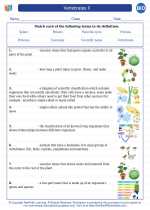Ocean
An ocean is a vast body of saline water that covers over 70% of the Earth's surface. It is a crucial part of the Earth's ecosystem and plays a significant role in regulating the planet's climate and weather patterns. Oceans are home to a diverse range of marine life and are a vital source of food, oxygen, and resources for human beings.
Key Concepts to Study
- Ocean Zones: Study the different zones of the ocean, including the sunlight zone, twilight zone, and midnight zone, and the unique characteristics of each zone.
- Marine Ecosystems: Learn about the various ecosystems within the ocean, such as coral reefs, kelp forests, and hydrothermal vents, and the organisms that inhabit these environments.
- Ocean Currents: Understand the causes and effects of ocean currents, including their influence on climate and weather patterns.
- Water Chemistry: Explore the composition of seawater, including salinity, pH levels, and the distribution of minerals and nutrients.
- Human Impact: Investigate the impact of human activities on the ocean, including pollution, overfishing, and climate change, and the measures being taken to address these issues.
- Conservation: Examine the importance of ocean conservation and sustainable management practices to protect marine ecosystems and biodiversity.
Study Tips
- Use visual aids such as diagrams and charts to understand oceanographic concepts and processes.
- Read scientific articles and case studies related to marine biology and oceanography to deepen your understanding of the subject.
- Utilize online resources and documentaries to explore the wonders of the ocean and its inhabitants.
- Engage in hands-on activities, such as visiting aquariums or participating in beach clean-up events, to connect theory with real-world experiences.
- Test your knowledge with practice quizzes and assessments to reinforce key principles and concepts.
Further Exploration
For a more in-depth understanding of oceanography, consider exploring topics such as ocean acidification, marine biodiversity, oceanic geology, and the role of oceans in the global carbon cycle.
Remember, the ocean is a fascinating and complex environment that continues to captivate scientists and researchers worldwide. By delving into the intricacies of the ocean, you can gain a profound appreciation for its significance in sustaining life on Earth.
[Ocean] Related Worksheets and Study Guides:
.◂Biology Worksheets and Study Guides High School. Vertebrates II
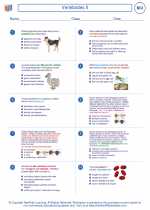
 Worksheet/Answer key
Worksheet/Answer key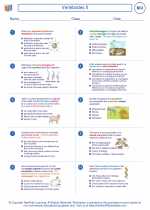
 Worksheet/Answer key
Worksheet/Answer key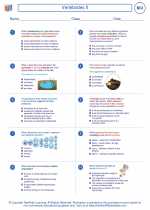
 Vocabulary/Answer key
Vocabulary/Answer key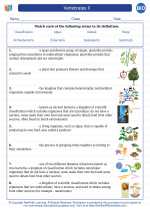
 Vocabulary/Answer key
Vocabulary/Answer key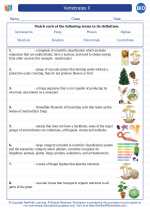
 Vocabulary/Answer key
Vocabulary/Answer key